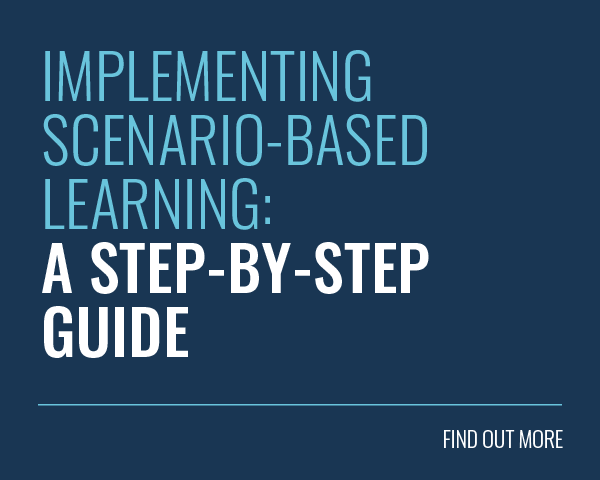
This week, I explore why annual performance reviews don’t work and what you can do about it!
Is sweat trickling down your neck? Heart racing? Skin prickling under close scrutiny? No, you haven’t woken up in a head-to-head Wimbledon final with Venus Williams! It’s worse, it’s the annual performance review.
The words ‘performance review’ or ‘appraisal’ can be anxiety-inducing stuff. Other people simply feel demoralised by the whole tick-box event.
In fact, 98% of people think annual performance reviews are unnecessary. It’s not just the employees who dislike appraisals – managers say the annual review is their second most hated work task, trumped only by firing someone!
Why Do Companies Use Annual Performance Reviews?
If annual appraisals are so unpopular, why do over half of companies continue to do them? Well, formal performance reviews have their uses. They provide a systematic way to measure and track employee performance against objectives and KPIs, to improve results.
The data can be used to reveal company-wide trends. Fans of the annual appraisal say it’s a tool for year-on-year performance comparisons that feed into business decisions. And of course, all that data fits nicely into a spreadsheet!
The problem is, however nice the data looks, it is often wrong! Research shows annual appraisals fail to accurately measure performance or improve results. For example, at least 30% of performance reviews lead to decreased employee performance! So, where did it all go wrong? Let’s find out.
6 Reasons Why Annual Performance Reviews Fail
The annual appraisal may have worked in a bygone era of sundials and assembly lines. But it no longer meets the needs of today’s ever-changing knowledge economy. Here’s why…
1. Limited Annual Feedback
Limiting important feedback to the annual appraisal means it is often irrelevant and meaningless. It’s all too easy to simply feedback on what we can remember from the last 12 months, rather than what matters.
Employees don’t want to know what you thought of their work 8 months ago, they want to know how they are performing right now! Modern employees expect feedback to be regular and on the spot (like everything else in the social media driven world of today). In fact, research shows millennials prefer weekly, if not daily, recognition for their work.
64% of people would leave a company that didn’t appreciate their contribution, to work for a company that recognises their efforts. So, don’t wait until it’s too late to tell someone they’re awesome because they may have already left the company, taking their talent with them!
To succeed, the performance review needs to evolve from a single yearly conversation into a process of regular feedback that responds to the individual and wider business needs.
2. Generic Feedback
Many companies use a 1-5 scoring system to judge each employee’s annual performance. Does this really reflect the true picture of employee performance? Employees’ strengths, achievements and sudden expressions of pure brilliance can’t be reduced to the likes of a Rotten Tomatoes review.
Nobody likes to feel like a number, especially when that number could determine the difference between a pay rise, promotion or another year in the drafty corner cubicle! In addition to being demoralising, the threat of a low appraisal score can actually reduce performance! Research shows when we feel our status is threatened, our creativity and ability to assess information drops.
It’s time to throw out the generic scoring system and replace it with regular, tailored feedback.
3. Giving Feedback is Difficult
Whether it’s good or bad news, giving feedback is difficult! 67% of leaders feel uncomfortable communicating with staff. A further one in five managers admit to finding it difficult to praise others. The formal performance review ramps up the pressure! Suddenly, you’re sat across from your direct report and they want to know exactly what you think of them!
The solution is to build managers’ skills and confidence through training and practise. The annual review can hinder managers’ development because delivering feedback once a year doesn’t offer many opportunities to put their abilities to the test.
Any skills developed in training will be lost if they are not applied in the real world. Make regular feedback a normal part of the company culture to give managers plenty of opportunity for experiential learning!
4. Meaningless Goals
Can you remember your new year resolutions? The problem with setting goals once a year is our good intentions get forgotten or become meaningless. I know I’m not the exact same person I was a year ago (OK, I still love unicorns, cake and learning!). People change and so do business needs. Goals need to adapt to remain relevant and useful.
Your employees need meaningful, clear and up-to-date objectives to perform well. Setting these important goals once a year doesn’t work! No sooner has the ink dried on the annual appraisal form than the goals are already irrelevant and meaningless.
Company and individual goals need to be flexible to meet the ever-evolving needs of the modern business world. This way, progress can be accurately measured against current business demands rather than what was going on months ago. After all, a lot can change in a year!
5. Poor Communication
Weddings, networking, dinner parties…We all know the power of formal occasions to render people speechless or dishing out monosyllabic, standard answers.
This is the last thing you want when you are trying to have open, honest conversations with your employees. Yet, in the formality of a performance review, staff may tell managers what they think they want to hear. Worse still you may get a lot of “don’t knows” for answers!
Annual performance reviews often fail to reflect on how employees really feel about their own performance. Avoid this by creating a supportive working culture where people feel their views and contributions are valued. Keep channels of communication open and listen to staff feedback. Create an environment where people feel safe to tell you what they really think!
6. Lack of Purpose and Clarity
Finally, a key reason why annual appraisals fail is because people don’t understand the point of them. The Institute for Employment Studies says companies often under-communicate the aims of performance reviews and instead focus on the administrative procedure. A lack of communication means employees don’t understand how the performance review benefits them or the wider company.
It’s your job to communicate the benefits of performance monitoring, regular feedback and development. What is the purpose of performance reviews? What are they trying to achieve? Why should your employees care? These are some of the questions you need to answer and communicate, to engage employees. Dispel fear, defeat apathy and maintain performance all year round by making the personal value of regular feedback and continuous development clear!
Final Words
Now we know where the traditional annual appraisal has been going wrong, it’s time to fix it! That’s where learning technology can help. Click here to find out how to transform the performance review into a powerful tool for organisational change.
– Juliette
Join our mailing list to keep up to date on all the juicy details about how you can unleash superheroes in your organisation.








